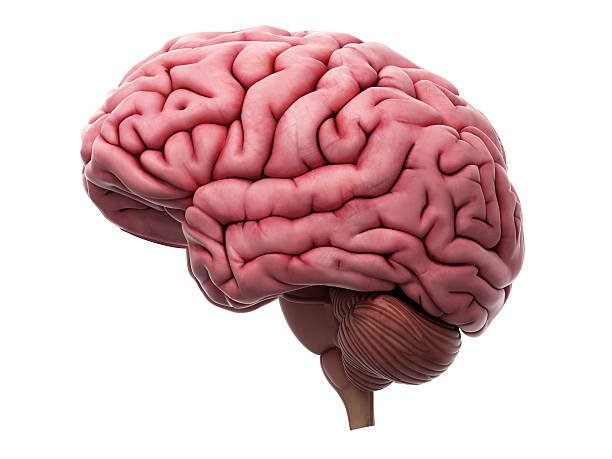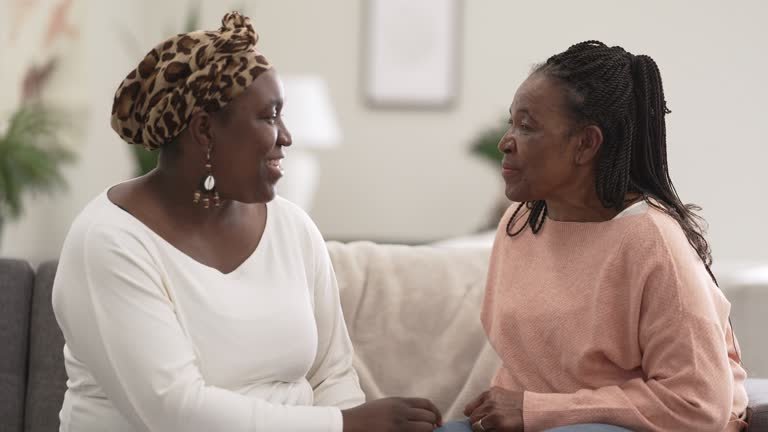Health Essentials
I love you with all my brain! ….and the heart missed a beat.

For centuries the heart has been touted as the seat of love and rightfully so. It appears to bear the brunt of all emotions; missed beats, fast pace or absolute peace all depending on how one is feeling.
You have probably also felt “butterflies” in your belly when love is close by. That is the miracle of brain-gut relationship, a testament to the interaction between the first and second “brains”. It is actually the brain that controls all our emotions and holds the cards to the release of all the feel-good hormones, the cuddling hormones and everything else that makes the heart go lub-dub.
July 22 marked World Brain Day and the theme was “Brain Health & Prevention”.
Statistics that make you sit up
- Top brain disorders in Ghana (outpatient data, Akpalu et al) are epilepsy, movement disorders, cerebrovascular disease and headaches.
- A whopping 84 per cent of brain challenges can be prevented by healthy living (90 per cent of strokes, 40 per cent of dementia and 25 per cent of epilepsies are preventable.
- one in three of us will get dementia or stroke during our lifetime
Steps to brain health
- Improve blood flow to your brain
- Exercising/ movement is key
- DO NOT retire from work
- Continue to task your brain at all times. You “lose” a brain not is not being used
- Work on puzzles, try out new games, hobbies, challenges etc. – do difficult things
- Check Inflammation
- Relaxation, Cocoa, Omega 3 and Probiotics come in very handy here.
- Modify your environment to tame genetics
- That’s when eating balanced meals are crucial. Curry/Tumeric for instance comes in very handy
- Green vegetables, fruits, a lot of water, good fats such as avocado, olive oil and nuts are all very important. Get your portions!
- Protect your head from trauma
- Try to avoid falls as much as possible
- If you have to ride a bike, keep a good helmet on
- Wear your seatbelt at all times when in a moving car
- Avoid Toxins
- Alcohol, cigarette smoking, shisha, hemp and other hard drugs as well as sugar
- Spice up your Mental Health
- Smile often, dwell on positive thoughts since all your cells are “listening”
- Practice gratitude at all times
- Boost your Immunity this also protects you from infections
- Get a good dose of vitamin D from Sunlight or even a supplement
- Check your hormones
- Watch your thyroid hormones. You health professional will help
- Control Lifestyle Diseases
- Monitor and keep blood pressure, blood sugar, cholesterol and weight under control.
- Optimize Sleep & Social Wellness
- Do not cheat yourself on sleep
- Spend quality time with loved ones and reduce SCREEN time
ALWAYS LAUGH OFTEN, ENSURE HYGIENE, WALK AND PRAY EVERYDAY AND REMEMBER IT’S A PRICELESS GIFT TO KNOW YOUR NUMBERS (blood sugar, blood pressure, blood cholesterol, BMI)
Dr. Kojo Cobba Essel
Health Essentials Ltd (HE&W Group)
(dressel@healthessentialsgh.com)
*Dr. Essel is a medical doctor with a keen interest in Lifestyle Medicine, He holds an MBA and is an ISSA Specialist in exercise therapy, fitness nutrition and corrective exercise. He is the author of the award-winning book, ‘Unravelling The Essentials of Health & Wealth.’
Thought for the week – “
Reference:
- Fact Sheet from Neurology Society of Ghana 2024
- Data from Professor Amen and Amen Group of Clinics
- By Dr. Kojo Cobba Essel
Health Essentials
Sick food environment: Poor diets fuelling the rise of NCDs in Ghana

WHEN Dorcas reaches for a chilled bottle of her favourite soft drink after lunch, she rarely considers its long-term effects on her health. For the 29-year-old secretary in Accra, the sweetness is comforting. The tiny print on the label—numbers, percentages and scientific terms—feels too distant to warrant concern.
“I take these drinks because they are less expensive compared to natural fruit juice. They are easy to get. Sometimes the drinks paired with a bun, buff loaf, cookies or biscuits serve as a full meal,” she says.
Nutrition experts, however, warn that a single 300ml bottle of soda can contain as many as nine cubes of sugar, almost twice the recommended daily limit.
“Even when you dilute it, the sugar content doesn’t reduce. Your tongue may not taste it, but your body absorbs every gram,” says Harriett Nuamah Agyemang, Country Director of SEND Ghana, which is leading advocacy for Front-of-Pack Labelling (FOPL) to help consumers make healthier choices.
Rising consumption and growing risk
Professor Richmond Nii Okai Aryeetey, a Public Health Nutrition Expert at the University of Ghana, says a recent study shows that one-third of Ghanaian adolescents consume sugary drinks at least once a day.
“Before the end of 2025, Ghana has already purchased almost US$1.3 billion worth of sugar-sweetened beverages. There is not enough data, but we know enough to see that consumption is high and rising, especially among the youth,” he indicates.
According to the Ghana Living Standards Survey, households spend nearly three per cent of their income—about GH¢2,200 annually—on sugary drinks.
Prof. Aryeetey says diets dominated by sugar, salt and fat, common in Ultra-Processed Foods (UPFs), are driving increases in hypertension, diabetes and heart disease.
“Ultra-processing takes food to another level. You combine ingredients that are intensely refined, and add industrial formulations, colours, flavours, sweeteners, that never appear in home cooking,” he explains. He identifies doughnuts, pizza, ketchup, burgers, and fizzy drinks as common UPFs.
The numbers behind the burden
The World Health Organisation (WHO) estimates that non-communicable diseases (NCDs), including stroke, heart disease, diabetes and cancers, account for 48 per cent of all deaths in Ghana.
In 2019, the age-standardised mortality rate for major NCDs stood at 750 per 100,000 males and 563 per 100,000 females. Projections indicate that by 2034, nearly 41 per cent of all deaths could be linked to complications from four major NCDs: stroke, heart attack, heart failure and chronic kidney disease, largely driven by unhealthy diets.
Ghana Health Service (GHS) data shows that in 2024 alone, more than 584,000 people were diagnosed with hypertension and nearly 200,000 with diabetes. In the first half of 2025, a further 255,000 hypertension cases and 88,000 diabetes cases were recorded.
Public health experts describe this as evidence of a “sick food environment”, where consumers are surrounded by cheap, aggressively marketed products high in salt, fat and sugar.
Convenience foods and changing lifestyles
From instant noodles and tomato paste to packaged snacks and fizzy drinks, UPFs have become staples in homes, schools, and workplaces.
Ms Agyemang links the trend to changing lifestyles.
“People spend hours in traffic and get home late. They go for the quick options canned, instant or fried. But the long-term cost to their health is enormous,” she says.
Ghana’s current labelling regulations require nutritional information to be placed on the back of packages, often in fine print that many consumers struggle to interpret.
“Even educated consumers struggle with it. For the ordinary person, it’s even more confusing,” she adds.
Front-of-Pack Labeling
Several countries, including South Africa, Nigeria, Mexico and Chile, have adopted Front-of-Pack Labelling, using simple symbols or colours to indicate high levels of salt, sugar or fat.
The WHO says FOPL enables consumers to identify healthier options at a glance and encourages manufacturers to reformulate products in order to avoid warning labels.
“It doesn’t only guide shoppers. It forces companies to compete on health, not just price,” Ms Agyemang notes.
At Rawlings Park in Accra, food vendor, Asia Bintu, says she checks only expiry dates.
“I don’t understand the numbers and those tiny inscriptions. Canned foods are cheaper and easier to cook,” she says.
Advocates say such responses reflect low food literacy, underscoring the need for public education and regulation.
Health system under pressure
Maxwell Bisda Konla, Principal Dietician at the University of Ghana Hospital, says Ghana’s progress in improving national nutrition has slowed.
“Obesity, hypertension and other NCDs are rising at an alarming rate as Ghanaians shift from traditional fibre-rich foods to highly processed meals, sugary drinks and refined carbohydrates,” he says.
Heart disease, kidney failure, and liver complications now feature prominently in mortality data.
He calls for stronger policies to limit the importation and marketing of unhealthy foods while promoting local alternatives such as brown rice, whole grains, fruits, vegetables, nuts, and seeds.
Schools as a focal point
Labram Musah, National Coordinator of the Ghana NCD Alliance, says schools are critical to reversing current trends.
“Children are increasingly exposed to unhealthy diets, especially in urban areas. What they eat in schools shapes their lifelong habits,” he says.
He advocates regulation of foods sold in and around schools, and the introduction of practical nutrition education, including school gardens and healthy meal plans.
“It’s not enough to tell children what to eat. We must make healthy options available and affordable. Imagine if every school had a small garden, it would change how children think about food.”
Mr Musah also urges the integration of FOPL into Ghana’s broader NCD prevention strategy, alongside salt reduction, sugar taxes and restrictions on marketing UPFs to children.
Evidence from Africa
A randomised controlled trial in Kenya involving 2,198 shoppers found that FOPL significantly improved participants’ ability to identify sugar, salt and saturated fat in packaged foods and reduced intentions to buy unhealthy products, particularly when black warning labels were used.
A South African study similarly found that simplified Front-Of-Pack Labels were more effective than detailed back-of-pack tables in helping consumers identify unhealthy foods.
Prevention as priority
The WHO says clear labelling can drive product reformulation and reduce diet-related diseases over time.
“Reading a label could be the difference between good health and a lifetime of medication. If we don’t act now, we will keep spending millions treating preventable diseases,” Ms Agyemang warns.
For Ghana, a stronger focus on prevention could reduce pressure on health facilities already managing growing NCD caseloads.
Nutrition advocates say introducing Front-of-Pack Labelling would strengthen Ghana’s response to NCDs by making nutritional quality visible at the point of purchase and supporting healthier decision-making.
Advancing SDG Three
The rising burden of diet-related NCDs poses a significant challenge to achieving Sustainable Development Goal Three, which aims to reduce premature deaths from NCDs through prevention and treatment.
Improving Ghana’s food environment through clearer labelling, salt and sugar reduction policies and better access to affordable healthy foods is considered essential to meeting these targets.
By prioritising preventive nutrition policies and healthier diets, Ghana could reduce avoidable illness, ease pressure on the health system and advance efforts to ensure healthy lives and well-being for all.
-GNA
Health Essentials
This Christmas Pamper the Elderly & Prepare for Your Golden Years

THE past few years I have been thinking a lot about how to make the life of elderly parents fulfilling and with less stress on our lives. How we should also prepare adequately for our golden years while we provide guidance to our children and grandchildren.
These thoughts have on several occasions shifted to peri-menopause and menopause, and the role of finance and wellness in all this cannot be taken for granted.
As Christmas draws closer, thoughts of people being “so busy” we neglect the elderly keeps flooding my mind. Age does creep up on us. One minute you are a toddler, then a teen, with neither fears nor cares, and in a blink of an eye you are a parent of teens who will remind you that being around for over half a century is old.
Is 50 that old? I do not think so, but a lot depends on what we have been doing for most of the 50 years. It is never too late to make changes.
As we trudge through life most of us never think about the challenges that our elderly parents may face, and we are just not prepared when reality stares us in the face. Every age bracket has its unique issues and between 40 to 65 years we often have quite a lot on our plate; supporting our elderly parents, putting our own lives in order and guiding our young ones.
Necessary steps to enhance life of elderly
- Never boss or try to “parent” your parents
- Think about this; we unconsciously start “ordering” our parents. Telling them what to do without finding their preferences etc. Parenting our parents is one of the challenges many elderly parents endure silently. Stop It!
- Ask for their opinion
- Being old does not mean one no longer has opinions. Ask. Argue in love, discuss issues such as exercise, medication, hospital visits, food, friends, religion, and politics. Everything. By all means seek their opinion.
- Do not over treat them medically
- Not every change you see in an elderly person requires medical intervention. Be careful what you buy medicines for and stay away from unnecessary tests. Make sure you speak to a knowledgeable health professional.
- Hospital stays should be as brief as possible
- Plan hospital or clinic visits to make them as short and convenient as possible. If possible, get tests and consultations done on the same day. If it is not an emergency find out if the medical facility has special arrangements for the elderly and also check the time of days with the shortest wait time. Many elderly people do not like the stress of hospital environments and why should they?
- When admitted for an illness, work together with the medical team to ensure they are home as soon as possible. Most of them do best in familiar surroundings and home is numero uno.
- Have them stay at home for as long as possible
- Sometimes children are in a hurry to send parents off to homes that care for the elderly. People often ask where they could get such support. I think we should all plan to keep parents at home for as long as humanly possible. Sometimes we do not have the option of having them at home, but we need to explore all our options.
- Help them to socialise
- Organise time with friends etc. at home and out of home. This brings a breath of fresh air to everyone including our elderly parents. This makes them happier, healthier and they live longer.
- …and the more time we spend with our elderly parents, the longer they live.
- Ensure physical activity
- No matter one’s age and medical condition, there is always a form of physical activity to engage in. It may be as simple as making fists or moving arms, but every movement goes a long way to make life better
- Sunlight is a must. Do whatever it takes to ensure at least one gets a few minutes of sunlight a day.
- The presence or chance to see beautiful plants is a bonus worth going the extra mile for.
- Spend quality time with the elderly this Christmas
- We are already in December and the world is already preparing for Christmas. Spending time with the elderly during the season is PRICELESS!! Yes, you can make some time for that.
Steps to prepare for our own golden years
- Start a wellness plan or continue if you already have one
- It is a must!! Learn to breathe, build muscle, move to ensure your heart is happy and even more important parts of your brain that protect you from dementia will grow.
- Keep in touch with your classmates
- They have known you for years and a phone call or occasional visit or gathering definitely ignites memories and it brings “warmth” beyond your wildest imagination
- Surround yourself with younger people
- They can support you in many ways and their visits brighten your day while your advice is priceless to them. It is a win-win situation.
- Avoid loneliness at all costs
- You are not an island. Even if you think you are better off on your own and with your thoughts, nature does not agree with that. Kindly make a few good friends.
- Protect your brain / memory
- Dementia is a matter of when and not if; exercise will enlarge the part of the brain that controls memory. Having a larger hippocampus means it takes longer for dementia to show up.
Age will definitely catch up with each of us if we hang around Earth long enough. It is a matter of when and not if so we should take steps to make our golden years and those of our loved ones happy and fulfilling. I will choose SUCCESSFUL ageing over USUAL ageing any day.
AS ALWAYS LAUGH OFTEN, ENSURE HYGIENE, WALK AND PRAY EVERYDAY AND REMEMBER IT’S A PRICELESS GIFT TO KNOW YOUR NUMBERS (blood sugar, blood pressure, blood cholesterol, BMI)
Dr. Kojo Cobba Essel
Health Essentials Ltd (HE&W Group)
(dressel@healthessentialsgh.com)
Dr. Essel is a Medical Doctor with a keen interest in Lifestyle Medicine, He holds an MBA and is an ISSA Specialist in Exercise Therapy, Fitness Nutrition and Corrective Exercise. He is the author of the award-winning book, ‘Unravelling The Essentials of Health & Wealth.’
Thought for the week (1) – “Ageing comes with Psychosocial challenges such as neglect, abuse, sexual adjustment, emotional disorders, other mental health challenges, issues with living arrangement and several others. Let us all help to make life easier and more enjoyable for the elderly”-Kojo Cobba Essel
BY Dr. Kojo Cobba Essel
Join our WhatsApp Channel now!
https://whatsapp.com/channel/0029VbBElzjInlqHhl1aTU27















